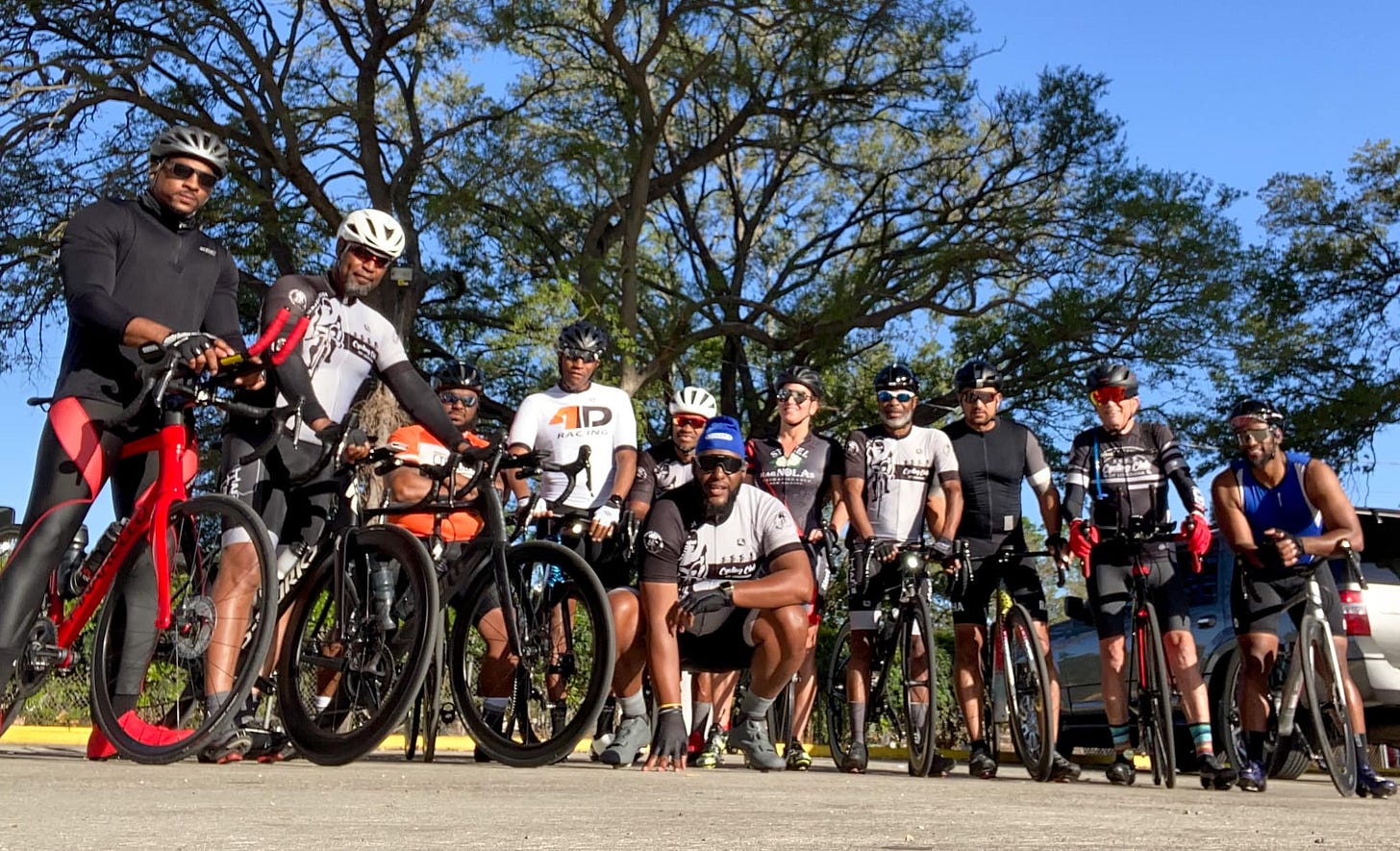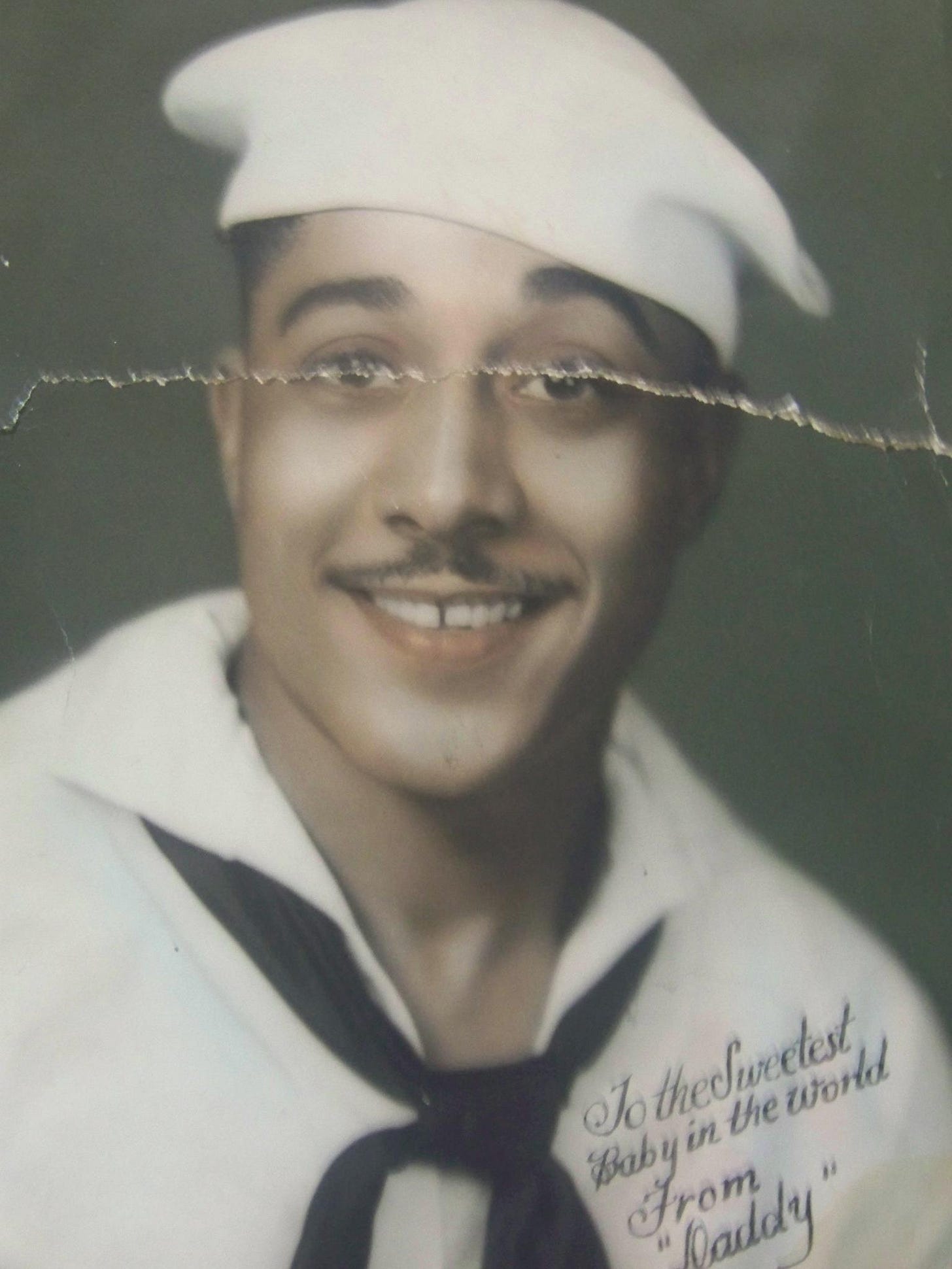Black Men Deserve to Grow Old
Members of the Major Taylor Society of Louisiana, a collective of black male cyclists committed to community service, awareness and health and wellness.
"Black men deserve to grow old..."
It's become a common saying when black men succumb to gun violence or extrajudicial killing by rogue law enforcement.
And yet, sadly, when the city was rocked by the news that First Gentleman Jason Cantrell died of a heart attack at the age of 59, I messaged a friend about his passing and found myself typing in response, "black men deserve to grow old."
September is Healthy Aging Month, an annual observance that commemorates active aging. First commemorated in 1998, Healthy Aging Month is designed to encourage Americans to take control of their physical, social, emotional and mental well-being as they age.
And yet, for black men, the average life expectancy is 66.7 years old, according to the U.S. Census Bureau, nearly 10 years less than black women and 7 years less than non-Hispanic white males.
To wit, black men have the lowest life expectancy of any ethnic group. Chronic illness, stress, environmental hazards, gun violence and even John Henryism have been blamed for disparities in life expectancy rates, and much of the nation's public health infrastructure has failed to significantly address the structural issues that contribute to black premature mortality.
Black men have the highest rates of mortality from heart disease and cancer, and the second-highest rates of death from infectious disease, behind Hispanics, according to the CDC.
The risk factors that contribute to premature mortality among black men are no better.
Twenty-three percent of black men 18 and older smoke cigarettes.
Forty percent of black men over the age of 20 have hypertension.
Nearly 40% of black men over the age of 20 are obese.
The idea that there should be targeted public health interventions for men is not new, but is one that still struggles with widespread adoption among men, and in some public health spaces. It is widely acknowledged that men have poorer health outcomes, are more likely to abuse tobacco and alcohol, are less likely to seek medical care, and engage in riskier behaviors than women.
Black male premature mortality is not just a serious public health issue in an abstract way; for me, it's an issue that's near to my heart: my maternal great-grandfather and namesake died of lung cancer before he was 50.
Sam Cook, Jr. was a strikingly handsome, slight man standing only 5’7” and 130 pounds with keen features. A veteran of World War II, he found work post-war as a stationary engineer and union steward at a metal casting company, which exposed him to deadly carcinogens day in and day out over a span of nearly two decades. Though slight of frame, he was in peak shape before his cancer diagnosis.
He never smoked.
He rarely drank.
He died in 1968, at the age of 47.
Having only had one child, a daughter, I received his name when I was born.
Conversely, his wife, my great-grandmother, Berneda Brandon-Cook, survived him by 37 years, dying in 2005 at the age of 84 (and even then, her death was accidental). A nurse by trade, she understood the importance of leading an active lifestyle, consuming fresh, healthy foods, and avoiding excess consumption of alcohol and tobacco. The hospital where she was employed was also free of the environmental hazards he experienced.
In her case, I got to share with her more than 20 years of birthday parties, Christmas gifts, home-cooked meals and $20 bills, crisply folded and surreptitiously delivered behind my mother's back to buy toys or snacks.
In his, the startling reality of the black male premature mortality deprived us both of fishing and camping trips, Friday night football games and weekend golf outings.
My great-grandfather and namesake, Sam Cook, III, who died of cancer at 47 after working for more than two decades as a stationary engineer at a metal casting company.
The idea that there should be targeted public health interventions for men is not new, but is one that still struggles with widespread adoption among men, and in some public health spaces. It is widely acknowledged that men have poorer health outcomes, are more likely to abuse tobacco and alcohol, are less likely to seek medical care, and engage in riskier behaviors than women.
It is also widely accepted that the nation’s public health infrastructure has not done enough to address men’s health in a resonant way.
Furthermore, the idea that black men, specifically, need targeted public health interventions that are both preventative and therapeutic, perhaps seems fatuous on its face. A rising tide will lift all boats, most would submit, and improved public health campaigns and messaging will, undoubtedly help everyone. But while the health challenges facing white, Latino and Asian men are of particular concern, the challenges black men face relative to their health are starkly different and more severe than those facing others, and require specific action steps to address them in a way that is culturally competent, appropriate and relevant.
One important key to addressing black men’s health is shifting the narrative about care from repair to prevention, according to Roland J. Thorpe of the Program for Research on Men's Health at the Center for Health Disparities Solutions at Johns Hopkins (both of Hopkins’ grandparents died in their 60s from heart disease).
Other strategies include eliminating the stigma surrounding care (or, the perception that seeking or needing healthcare is “weak” or that doctors can’t be trusted), as well as cultivating positive de-stressing mechanisms for black men. Finally, a community-centered approach that creates safe spaces for men to improve their health literacy, engage in physical activity and exercise is vital.
As we close Healthy Aging Month, let’s commit ourselves to doing the work to ensure that future generations of black youth won’t be deprived of their grandfathers and great-grandfathers.
Because, all black men deserve to grow old.
p.s.
While I know this post might have been a bit heavy, I’m proud to say my maternal grandfather lived to the age of 92. The last time we talked on the phone, just a few short weeks before his death, he was out in his backyard chopping wood for kindling. We cherish his memory. Love you, Red!





